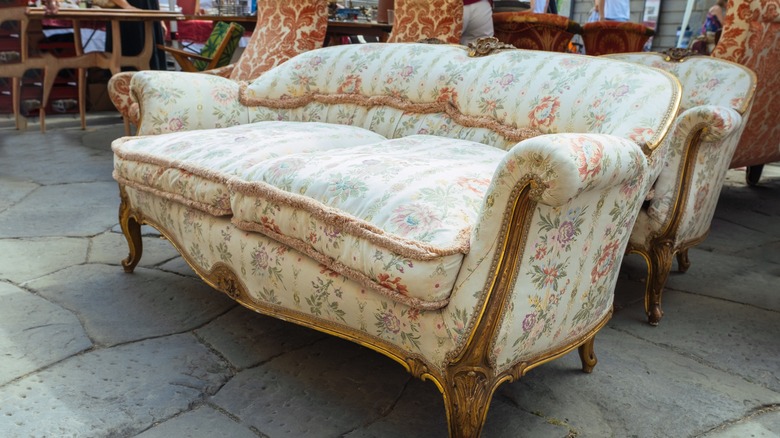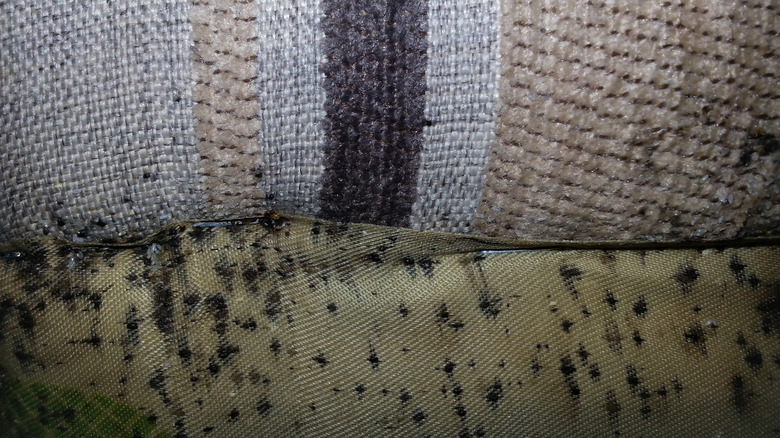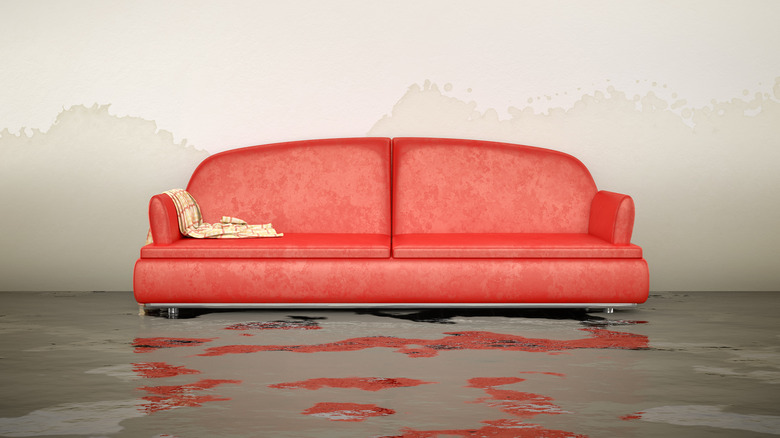The Terrifying Reason You Might Want To Avoid That Cheap Sofa At An Estate Sale
Spending the day at an estate sale can be a great way to find vintage or hard-to-find items you can't track down in stores, and part of the fun is finding things at a good discount. But one of the downsides of buying at an estate sale is that you don't really know what has happened to the items — and buying a cheap sofa can result in bed bugs, mold, and allergens in your living space.
Estate sales usually happen when someone has passed away and the family sells their belongings to raise some cash or just pass on the items to others. These sales can be full of good, usable furniture, appliances, and even clothing. While some of the most valuable estate sale items are art pieces, wooden furniture, and vintage-colored glassware, there are some things you should plan to skip — including couches. Though you can get a good deal on one for hundreds less than you would pay in a store, what it may harbor isn't worth the risk.
Bed bugs can hide in couches
The name "bed bug" is a misnomer because they hide out in multiple areas, from dresser drawers and curtains to electrical sockets and in the back of wallpaper. Believe it or not, they have even been known to hide in screw heads. In couches, their favorite spot is often the seams, where they can go unnoticed.
Some people believe it's enough to give the couch a thorough visual inspection. There are some definite markers that bed bugs may have infested a piece of furniture, including red smears of blood from their feeding and black spots from their feces. You may also notice the empty casing of their exoskeleton after they shed, though this may be more difficult to observe. Specks of blood and spots are usually found on and under the cushions but can also be seen under the frame of the sofa itself. Nevertheless, there is often no identifiable way to determine if a couch has bed bugs — and it's better to skip the opportunity for a deal than to take the chance of bringing them home.
Mold and allergens can be stuck in old sofas
Mold is often born from a combination of moisture, darkness, and unventilated air. Unfortunately, that is also a key component of many estate sales, where some furniture may have been kept in a home for decades. Some sofas might have been living in basements filled with hidden mold for years. Basements are prone to flooding, and when water gets stuck in a couch, there is no way to dry it out and prevent the inside areas from getting moldy. In most cases of flooded upholstered furniture, you have to throw the item away. Mold in couches can cause a host of respiratory issues such as irritated nasal passages and throat, dry cough, eyes that water and burn, and ongoing sinus symptoms and stuffiness.
Besides mold and mildew, upholstered couches can pick up things they have been exposed to over the years including chemicals and scents. Think of the years of smoke, perfume or cologne, pet odors, and even human body odors, all of which can exacerbate the symptoms of a person who suffers from allergies. Since you can't tell what the sofa has been exposed to, your best bet is to go for items that are washable and can be cleaned.


